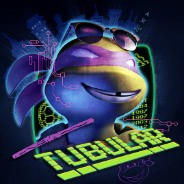Нужно подчеркнуть сказуемое во ВСЕХ предложениях. Если сказуемое в пассивном залоге, или модальное, отметьте это в скобках
Sigmund Freud, who explored the unconscious for over forty years and established its great significance in mental and emotional functioning, often began a lecture to a new audience with an account of a parapraxis, or a slip of the tongue. Such slips, which we all make from time to time, are excellent examples of how the mind operates simultaneously at different levels, or in different ways. Slips of the tongue also illustrate how matters over which we have some conflict may be related to the unconscious mind but find sudden – and sometimes embarrassing – expression.
What is the unconscious? The unconscious is that area of our experience that is not normally accessible to us either because its contents never were conscious (traces of events that happened before we had language, when we were infants) or because its contents have been repressed, or pushed out of awareness, because they are in some way threatening to us. For example, a woman may “forget” that her friend is chronically late for appointments until each time it happens because she is afraid that if she expresses her anger, the friend will become angry too.
How does unconscious material come into awareness? Sometimes unconscious thoughts erupt into consciousness quite unexpectedly. More often, however, unconscious material remains hidden away until it finds expression in our dreams or fantasies (where it is usually disguised) or in our conscious associations to material in our dreams. As we begin to try to understand our dreams and to relate events in them to ideas and events in the real world, the unconscious thoughts that underlie dream images may come to awareness.
Sigmund Freud, in proposing his theory of the unconscious, found himself in opposition to the mainstream of nineteenth-century thought. Many scientists and philosophers felt that the then new science of psychology should attend to the conscious mind, analyzing its contents or exploring its active processes – such as sensing, thinking, and imagining; others felt that because mind was an abstraction, only behavior could properly be studied. For Freud, however, the mind was like an iceberg: the small part of the iceberg that we see represents the conscious mind; the great mass below the water represents the unconscious urges, passions, and repressed ideas and feelings that control conscious thought and action.
194
383
Ответы на вопрос:
1) was writting, was speaking 2)fell out, was standing 3)paid, worked 4)was snowing, were making 5) left, saw, bought
Реши свою проблему, спроси otvet5GPT
-
Быстро
Мгновенный ответ на твой вопрос -
Точно
Бот обладает знаниями во всех сферах -
Бесплатно
Задай вопрос и получи ответ бесплатно

Популярно: Английский язык
-
Текст на тему безпека в інтернеті (7 речень)...
 Ryddy29.04.2023 10:14
Ryddy29.04.2023 10:14 -
2.11. Сопоставите вопросы из колонки А с ответами из колонки В....
 natalia245p025sf05.08.2022 04:11
natalia245p025sf05.08.2022 04:11 -
Circle the correct words. 1. I m not strong enough carry / to carry...
 Katerinkacat02.09.2021 02:08
Katerinkacat02.09.2021 02:08 -
Listen one more time and say True or false...
 Анюта1007240101.03.2022 19:02
Анюта1007240101.03.2022 19:02 -
Англ мова фастом зделаю самим лутшим ответом фастом...
 SUPREMcccр11.03.2023 23:30
SUPREMcccр11.03.2023 23:30 -
2. Passive 2 (past simple) Make the passive form with the past simple....
 BANDI876488606.04.2021 23:08
BANDI876488606.04.2021 23:08 -
Правильно перевести, ) вот: я бы тоже хотела чтобы ты приехала в россию!...
 Торт12328.05.2020 22:28
Торт12328.05.2020 22:28 -
20 ! напишите хотя бы на . про . (кто основал, в каком году и т.д.)...
 vanyastal201530.03.2023 17:13
vanyastal201530.03.2023 17:13 -
Придумать рецепт салата или бутерброда на , для 6 класса, желательно...
 ExLuSsiVe25.09.2022 18:30
ExLuSsiVe25.09.2022 18:30 -
Перевод предложений: тереза и я собирались в магазин за покупками....
 niaz16736120.11.2020 15:35
niaz16736120.11.2020 15:35

Есть вопросы?
-
Как otvet5GPT работает?
otvet5GPT использует большую языковую модель вместе с базой данных GPT для обеспечения высококачественных образовательных результатов. otvet5GPT действует как доступный академический ресурс вне класса. -
Сколько это стоит?
Проект находиться на стадии тестирования и все услуги бесплатны. -
Могу ли я использовать otvet5GPT в школе?
Конечно! Нейросеть может помочь вам делать конспекты лекций, придумывать идеи в классе и многое другое! -
В чем отличия от ChatGPT?
otvet5GPT черпает академические источники из собственной базы данных и предназначен специально для студентов. otvet5GPT также адаптируется к вашему стилю письма, предоставляя ряд образовательных инструментов, предназначенных для улучшения обучения.
